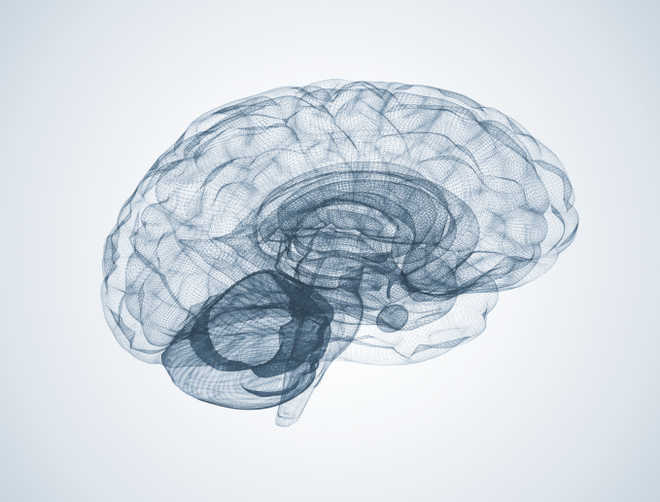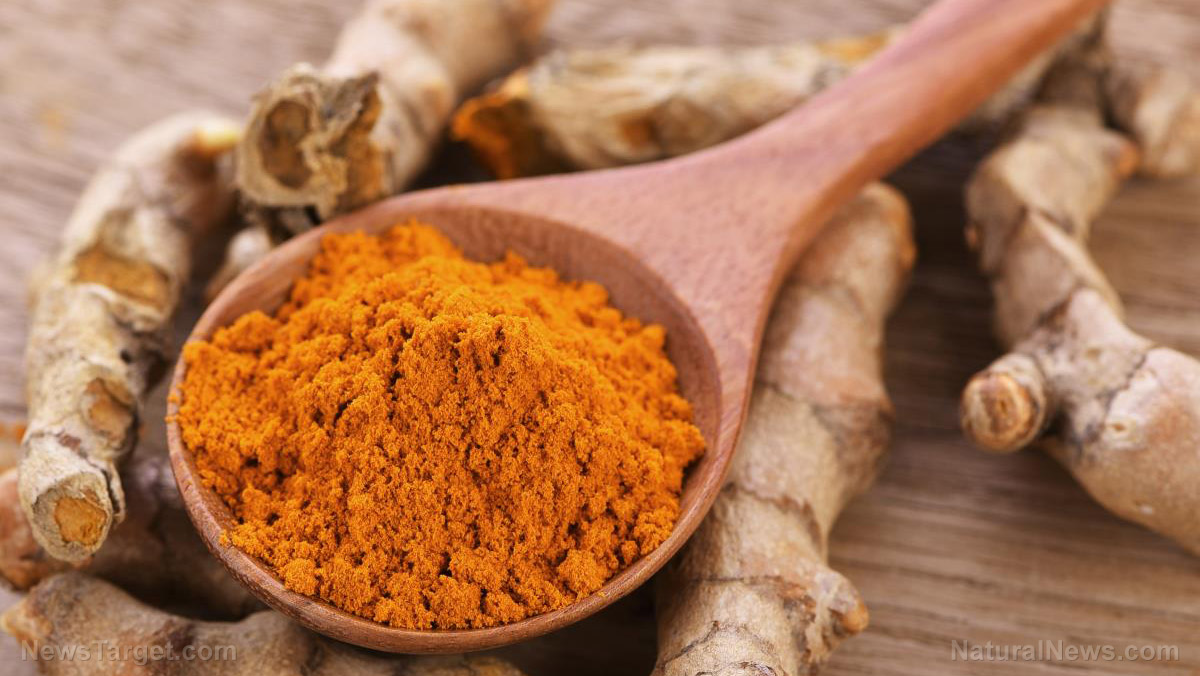Nature Knows and Psionic Success
God provides
Want better working memory? Nutrition and healthy lifestyle habits play key roles in how much you remember

( Natural News ) The way you live your life plays a vital role in how much or how well you remember. A team of researchers in Israel has suggested that adapting a healthier lifestyle can help improve working memory . For the study, which was published in the journal Molecular Psychiatry , the research team recruited 823 participants aged between 22 and 37 years. The participants underwent brain scans during a difficult memory task and accomplished post-scan memory test. The research team also measured the health and lifestyle of the participants. Results from the brain scans revealed the brain regions that mainly engage in working memory tasks. These include the dorsolateral prefrontal cortex, parietal cortex, and anterior cingulate cortex. These brain regions served as a frame of reference to evaluate the relationship between working memory and health and lifestyle. The research team found that there was a strong association between activity in working-memory brain areas and health and lifestyle. After taking into consideration all behavior and health factors, the highest positive correlation occurred with fluid intelligence, reading, spatial orientation, picture vocabulary, several memory tests, and attentiveness, respectively. In addition, these healthy lifestyle habits generally improved brain function of the participants. On the other hand, there was an inverse correlation between specific lifestyle indicators as a large body mass index and various unhealthy lifestyle habits, such as binge drinking and regular smoking. Health factors that correlated negatively with working-memory brain areas included a high body mass index (BMI), high blood pressure, and reduced glucose regulation. (Related: Poor lifestyle habits in middle age cause brain shrinkage and cognitive decline .) The power of the elements : Discover Colloidal Silver Mouthwash with quality, natural ingredients like Sangre de Drago sap, black walnut hulls, menthol crystals and more. Zero artificial sweeteners, colors […]
Nootropics: How to supplement smarter to age better

As we age, it can be a struggle to feel rested and energized… especially, all at the same time. In fact, if most of us could manage to do both, and at that same time get a big cognition boost to the brain — well, that would be just about perfect, wouldn’t you agree? Thanks to some mavericks who’ve taken supplementing to the next level, that may not be as hard to achieve as you might think… The answer lies in nootropics . What is that, you ask? It’s the new buzz word that most often refers to “smart pills” that are all the rage right now, being used by everybody and anybody who wants that extra edge to perform better and stay sharper. Some nootropics are synthetic, but many are natural substances. And guess what? There’s no reason you shouldn’t benefit from nootropics, too. The lowdown on nootropics Let me give you a quick introduction to nootropics… When you boil it down, what they can really be called is brain boosters. They basically enhance all of your mental functions like your mood, memory, attention span, focus and even your motivation. Powerful stuff, right? And although they’re thought of as the new kids on the block, the term nootropics was actually coined back in the early 1970s by a Romanian doctor. So, what do nootropics do? Well that depends on the nootropic. My two favorites are called ashwagandha root and rhodiola rosea, and here’s why… The ashwagandha/rhodiola difference Ashwagandha and rhodiola are in a class of their own when it comes to nootropics, and the scientific research backs them up. First, let’s take a look at what the studies show when it comes to ashwagandha… One study found that the herb significantly improved memory and executive function as well […]
Considering Trying Nootropics? Here’s What You Need To Know

Over the past decade, there has been a lot of excitement over a new category of supplements called nootropics , which are marketed as compounds that can improve cognitive performance, memory, and focus while providing neuroprotective benefits (meaning, they protect your brain from damage and degeneration). These days, you’d be hard-pressed to find anyone who doesn’t want to boost their brain power, so it’s pretty clear why you can now find nootropics in the form of oils , shots , and snack foods . From college students struggling to pass exams to entrepreneurs looking to take their business to the next level, many people are experimenting with nootropics in some form. But this is a tricky conversation, because there is a wide range of compounds that could technically be categorized as "nootropics"—including antioxidant-rich foods (like extra virgin olive oil and turmeric). In fact, many foods that you eat on a regular basis contain these compounds. For instance, coffee and green tea contain caffeine, which is a nootropic. Having a complete and balanced diet is one of the best ways to get plenty of nootropics in their natural form. However, many people feel that supplementing with additional nootropics, either natural or synthetic, gives their brain the added boost they crave. Before we dive in, it’s important to mention that if you’re concerned about any cognitive symptoms you’re having, be sure to consult your doctor (and while you’re there, see if they have any recommendations for nootropics that you, in particular, might benefit from).
These supplements are proven to reduce cortisol levels

( Natural News ) Do you find yourself getting stressed all the time? You should watch your cortisol levels. This hormone, aptly called the “stress hormone,” helps your body deal with emergencies, but continuous flow of it can lead to a variety of health problems. Thankfully, you can control your cortisol levels through natural means, particularly, by taking the right supplements . The American Psychological Association reveals that a large percentage of Americans – both adults and children – suffer from chronic stress or symptoms related to it. Chronic stress pertains to extended exposure to stress. It can lead to various mental, as well as physical problems . Sufferers often have difficulty concentrating and getting sleep and are at a higher risk for conditions like anxiety, depression, reproductive problems, heart disease, and even cancer. There are plenty of ways to deal with stress and taking natural supplements that help control your cortisol levels could be one of them. This method will essentially help you handle stress from the inside. Here are some of the best supplements for cortisol control: Withania somnifera This herb, also known as ashwagandha , belongs to a group of herbs called adaptogens, which contain properties that make them excellent for dealing with stress and its symptoms. True enough, ashwagandha is traditionally used in Ayurvedic medicine as a natural treatment for anxiety. According to studies, supplementing with this herb can lower your cortisol levels by up to 30 percent. Rhodiola rosea This adaptogenic herb, also known as golden or Arctic root , has several uses in traditional Chinese medicine. It is used to increase stamina and vigor, as well as reduce stress and fatigue. Unlike other stress treatments, however, it is not a sedative. Instead, it leaves you feeling energized. Mother Nature’s micronutrient secret : Organic […]
The best essential oils for healthier hair

( Natural News ) Essential oils are versatile natural remedies that have been used for numerous purposes. One of the many benefits of essential oils is the ability to enhance hair health. Here are some of the best essential oils to keep your locks healthy and looking their best: Bergamot oil – Derived from the interior cells of the ring of bergamot oranges , bergamot oil contains antimicrobial properties that are healthy for the scalp. This oil also reduces inflammation and helps speed up the healing of wounds. This, in turn, promotes hair growth and a healthy scalp. Jojoba oil – Jojoba oil is derived from the seeds of the jujube ( Ziziphus jujuba ) plant. The application of jojoba oil on areas where hair has been shaved speeds up the growth of hair, according to studies. Hence, it is often used as an ingredient for hair loss products. Peppermint oil – According to some studies, peppermint essential oil is an even more effective hair loss treatment than store-bought hair loss products. Using peppermint oil can increase the density of hair follicles and scalp thickness. In addition, it can accelerate the growth phase of the hair. Some studies suggested that the menthol in peppermint causes blood vessel dilation, improved circulation, and enhanced blood flow, which could be one of the key reasons for peppermint’s effectiveness in promoting hair growth. Ylang-ylang oil – Ylang-ylang essential oil helps protect the hair from the harmful effects of the sun and ocean water. In addition, this essential oil makes the hair stronger and prevents breakage. 100% organic essential oil sets now available for your home and personal care, including Rosemary, Oregano, Eucalyptus, Tea Tree, Clary Sage and more, all 100% organic and laboratory tested for safety. A multitude of uses, from stress reduction […]
Environmental extremists are responsible for California’s chronic power shortages

( Natural News ) The summer of 2018 is shaping up to be historic as temperatures soar around the country to new highs, especially in the desert areas of the West and Southwest. One state that has been particularly hard-hit is California. On a recent day, temperatures climbed to 122 F in Palm Springs. Besides creating new drought conditions, the excessive heat in the Golden State is also causing another problem: Brownouts due to power shortages mostly tied to increased air conditioner use. As The Daily Caller reported Tuesday, the demand for power is outstripping the state’s ability to provide it by as much as 5,000 megawatts per day, leading California’s power grid operator to call on residents to cut electricity usage at peak times — while temperatures remain elevated. “Due to high temperatures in California and most of the western U.S., the California Independent System Operator Corporation (ISO) has issued a statewide Flex Alert that calls for voluntary electricity conservation from 5 p.m. to 9 p.m. Tuesday, July 24, and Wednesday, July 25,” said a Flex Alert from the California Independent System Operator (CAISO). “Consumers are urged to conserve electricity, especially during the late afternoon and evening when air conditioners typically are at peak use. Consumers can help avoid power interruptions by turning off all unnecessary lights, using major appliances before 5 p.m. and after 9 p.m., and setting air conditioners to 78 degrees or higher,” the alert continued. What’s interesting to note is that state officials were warned about this eventuality in May . Support our mission and enhance your own self-reliance : The laboratory-verified Organic Emergency Survival Bucket provides certified organic, high-nutrition storable food for emergency preparedness. Completely free of corn syrup, MSG, GMOs and other food toxins. Ultra-clean solution for years of food security. Learn […]
Learn to read faster and improve your memory for just $9

You know how they say people only use 10% of their brain? Yeah, it turns out, that’s total bullshit . We absolutely use most of our brain, almost all of the time. And there’s no magic key that unlocks an unused, possibly telekinetic reserve of mental power. There is, however, a set of techniques that can help you use your brain power faster and more effectively. It’s called the Become a SuperLearner: Speed Reading & Memory course, and while it won’t help you levitate objects with your mind, it can elevate the way you learn, work, and play. This revised and expanded edition of the original SuperLearner course takes students on a journey through the human brain, with over 62 lectures and five hours of content. You’ll start by learning about cognitive functions; getting the neurological lay of the land. Then you’ll learn how to leverage your brain’s natural inclinations in order to memorize more information, and retain it for longer. Building off of that, you’ll discover the keys to speed reading—not just skimming but actually comprehending the content and committing it to memory. Together, these new skills allow you to tear through your reading list, hone your rate of recall, and even learn new languages with ease. Can this training turn you into a genius? That’s yet to be seen, but it’s certainly a smart move to buy lifetime access today— SuperLearner is now only $9 after a massive discount off the original $144.99 price.
Screen time is hard on your eyes: Here’s how to protect them

( Natural News ) We rely on our visual system to help us perceive the world around us through visual cues that are then sent to the brain for interpretation. These cues include color, shapes, size, distance, depth, movement and temperature. The eyes process tons of information every day, and these information mostly come from digital screens at home or at work. People no longer leave their home without smartphones, and so many of us use computers at work that digital eye strain has become a major job-related issue. When your vision becomes progressively blurred, it can affect most of your activities. If you’re staring at a screen all day, you may develop other vision-related ailments, such as eye fatigue, dry eyes, sore eyes, and double vision. Long periods of screen exposure not only affect the eyesight, but other parts of your body as well. For instance, headaches can be caused by blurred vision. Protect your eyes from strain with the following tips: (h/t to MindBodyGreen.com .) Practice good phone and computer habits – These days, you won’t find anyone who isn’t looking into some sort of screen, be it a laptop, tablet, or smartphone. The significant amount of time spent exposing your eyes to artificial blue light is a major driver of blurred or impaired vision. It’s important to take frequent breaks by blinking more often and looking away from the screen for two to three minutes for every 15 to 20 minutes of screen time. In addition, you can adjust the brightness, text size, and color temperature of your phone or laptop to become less intense and glaring to the eyes. You may also upgrade the display to a clear resolution to help avoid eye strain. Adjust your lifestyle habits – What you do to your eyes […]
Recent study suggests dark chocolate can improve mood and memory

When choosing chocolate for health benefits, pick chocolate with a minimum cacao concentration of 70 percent. Also, natural chocolate has more flavanols than Dutch process. Q: I have some dark chocolate every day and my (otherwise kind and loving) husband teases me for believing the news stories that chocolate is good for you. Please tell me that I haven’t fallen for a bunch of quack science! A: We can certainly understand how the idea that chocolate offers health benefits might spark a bit of skepticism. After all, when we hear about so-called superfoods, it’s foods like kale, fish oil or green tea that tend to top the list. The idea that something as delicious as chocolate might be anything more than an indulgence takes a bit of getting used to. And yet you’re right — a number of studies have linked chocolate with a range of positive outcomes. The results of recent research suggest that chocolate improves memory and brain function, lowers blood pressure and cholesterol, can boost immunity, and has a positive effect on mood. But before you unwrap a chocolate bar in celebration, there’s an important caveat. It’s only dark chocolate that confers these positive effects. That is, chocolate with a minimum cacao concentration of 70 percent. That’s because cacao is rich in chemical substances known as flavanols, which have potent antioxidant properties. Studies have shown that flavanols have a positive effect on connections between brain cells, offer protection from toxins and can shield the body from some of the damaging effects of inflammation. The catch here is that in its pure state, cacao is relentlessly bitter. It’s the sugar and fat that get added during manufacturing that give chocolate its sweetness and silky-smooth feel. For many people, the high levels of cacao needed for chocolate to […]
Brain zapping during sleep may boost memory

Science Technology Photo for representation only. — Thinkstock. Washington, July 24 Delivering a non-invasive brain stimulation when a person is sleeping can improve their memory, a study has found. The transfer of memories from the hippocampus to the neocortex for long-term storage is thought to be enabled by synchronisation of these parts of the brain during sleep. Researchers from the University of New Mexico in the US sought to enhance this natural process of overnight reactivation or neural replay to improve memory with a closed-loop transcranial alternating current stimulation system matching the phase and frequency of ongoing slow-wave oscillations during sleep. Participants were trained and tested on a realistic visual discrimination task in which they had to detect potentially threatening hidden objects and people such as explosive devices and enemy snipers. The researchers found that when participants received stimulation during overnight visits to their sleep laboratory, they showed improved performance in detecting targets in similar but novel situations the next day compared to when they did not receive the stimulation, suggesting an integration of recent experience into a more robust and general memory. Overnight memory changes correlated with stimulation-induced neural changes, which could be used to optimise stimulation in future applications. The findings provide a method for enhancing memory consolidation without disturbing sleep. — PTI.
You don’t need to spend hours at the gym to boost your body and brain — here’s how long your workout should take

Cardio could be the closest thing to a miracle drug that we have, but doing it shouldn’t take a whole day. Instead, the available evidence suggests there’s an ideal window for exercises like cycling, swimming, or brisk walking – and it’s under an hour. All of these moves raise your heart rate and get you moving and sweating in a way that appears to benefit our moods and muscles more than other workouts focused solely on weight-lifting or stretching. Cardio could be the closest thing to a miracle drug that we have, but doing it shouldn’t take a whole day. Instead, the available evidence suggests that committing 30 to 45 minutes daily to exercises like cycling, swimming, or brisk walking is the ideal way to reap the maximum health benefits for your body and brain. These moves raise your heart rate and get you moving and sweating in a way that appears to benefit our moods and muscles more than other workouts focused solely on weight lifting or stretching. To do them correctly, scientists have a few pointers that go beyond simply clocking in at 30 minutes. Why cardio is so key to wellbeing Foto: sourceUnsplash / Haley Phelps A growing body of research suggests that when we commit to regular workouts that raise our heart rates and get us moving and sweating for a sustained period of time, magical things happen to the body and brain. We think more clearly , feel better overall, and protect our brains against some of the cognitive decline that occurs with age. “Aerobic exercise … has a unique capacity to exhilarate and relax, to provide stimulation and calm, to counter depression and dissipate stress,” the authors of an article in the Harvard Medical School blog “Mind and Mood” wrote. In addition to […]
Zapping your brain while you sleep could actually improve your memory

Technologies like Elon Musk’s proposed Neuralink promise augmentation of the human memory, courtesy of a special brain chip. If you’re not quite ready to dive into the world of brain implants to improve your memory function, however, you might appreciate a piece of research carried out recently by scientists at the Society for Neuroscience. They have demonstrated a noninvasive overnight brain stimulation technique that promises to improve people’s ability to remember things. And you won’t have to worry about an overzealous engineer taking a miniature hacksaw to your skull – this technique won’t even disturb your sleep! “We have shown that we can improve the integration of recent experiences into a more general form of memory through the process of sleep-dependent consolidation,” Dr. Nicholas Ketz , one of the researchers on the project, told Digital Trends. “We do this by selectively enhancing the natural slow-wave oscillations that occur during sleep, which are essential in this consolidation processes. Further, we’ve shown that we can use a fully closed-loop system that automatically detects these oscillations and stimulates at the matching frequency and phase of the ongoing slow waves, greatly improving our ability to influence the underlying brain state and thus the consolidation process.” Participants in the researchers’ study were trained and then tested on a visual discrimination task in which they had to identify objects and people in a scene. Those who had been given the brain stimulation while sleeping were noticeably better at detecting those same targets in similar, but novel, situations. Ketz said that there is still further work to be done, though. “While the average response across the group of participants shows increased performance and enhanced slow-wave oscillations, many participants showed varying degrees of responsiveness to the intervention,” he said. “Future work related to this approach would try […]
Huffington Post shills for Monsanto, recommends consumers eat more pesticides

( Natural News ) Eat your bug-killing corn and your weed-killing soy and shut up. That’s the ultimate message coming from the Bayer/Monsanto shills at “HuffPo” (Huffington Post) and the Environmental Protection Agency, the latter of which should be renamed the Environmental Promotion of Poisonous Pesticides Agency (EPPPA). Any food that doesn’t make you deathly sick the same day you eat it is considered “generally recognized as safe” by any scientist, journalist, or federal regulator on the trickle-down payroll that comes from the deep pockets of “Ag-Tech” biotechnology firms, also known as the Biotech Cartel. Let’s face it, anyone can call biotechnology “cutting edge science” and the “advance of agricultural technology,” but the truth is that humans should not be consuming food that’s genetically engineered in a laboratory to destroy the digestive tracts of insects, to annihilate the reproductive capabilities of animals, and to contain weed-killing compounds that cause liver failure, kidney malfunction, and massive cancerous tumors in lab rats. That’s all just common sense, and anyone questioning the safety of repetitively eating these agriculture toxins is not “anti-science,” but rather pro-science, because that’s the basis of all science to begin with – to ask tough, important questions and then investigate to find answers. Shilling for the Bio-Tech Cartel is nothing new, and the posers, hucksters and charlatans are becoming easier to identify GMO-pushing quacks are a dime a dozen. For years, top investigative journalists at NaturalNews.com have spent countless hours uncovering the fraudsters and exposing the huckster media outlets that employ them, or that they run themselves. The power of the elements : Discover Colloidal Silver Mouthwash with quality, natural ingredients like Sangre de Drago sap, black walnut hulls, menthol crystals and more. Zero artificial sweeteners, colors or alcohol. Learn more at the Health Ranger Store and help […]
Zapping your brain while you sleep could actually improve your memory

Scientists have demonstrated a noninvasive overnight brain stimulation technique that can improve people’s memories. Best of all? It won’t even disturb your sleep! Here’s how it works. Technologies like Elon Musk’s proposed Neuralink promise augmentation of the human memory, courtesy of a special brain chip. If you’re not quite ready to dive into the world of brain implants to improve your memory function, however, you might appreciate a piece of research carried out recently by scientists at the Society for Neuroscience. They have demonstrated a noninvasive overnight brain stimulation technique that promises to improve people’s ability to remember things. And you won’t have to worry about an overzealous engineer taking a miniature hacksaw to your skull – this technique won’t even disturb your sleep! “We have shown that we can improve the integration of recent experiences into a more general form of memory through the process of sleep-dependent consolidation,” Dr. Nicholas Ketz , one of the researchers on the project, told Digital Trends. “We do this by selectively enhancing the natural slow-wave oscillations that occur during sleep, which are essential in this consolidation processes. Further, we’ve shown that we can use a fully closed-loop system that automatically detects these oscillations and stimulates at the matching frequency and phase of the ongoing slow waves, greatly improving our ability to influence the underlying brain state and thus the consolidation process.” Participants in the researchers’ study were trained and then tested on a visual discrimination task in which they had to identify objects and people in a scene. Those who had been given the brain stimulation while sleeping were noticeably better at detecting those same targets in similar, but novel, situations. Ketz said that there is still further work to be done, though. “While the average response across the group of participants […]
Acetyl L Carnitine Benefits: The Supplement That Burns Fat and Powers the Brain

Acetyl-L-carnitine (ALCAR) is a mitochondrial boosting supplement that improves mood, learning, and memory. ALCAR also helps your muscle mitochondria burn fat, which can increase your endurance, give you an edge in the gym, and help you recover faster. For nootropic benefits, take two grams of ALCAR a day. For better endurance and faster recovery, take 2-3 grams of ALCAR a day — half before your workout and half afterward. Acetyl-L-carnitine (ALCAR), is a powerful addition to your biohacking toolbox. This valuable little molecule has been a staple in the bodybuilding and brain-hacking communities for years now, thanks to its ability to help you lose weight and power up your brain. Read on to learn more about the benefits of acetyl-L-carnitine, plus side effects, safety and proper supplement dosage. What is acetyl-L-carnitine? Acetyl-L-carnitine is an amino acid naturally produced in your body to generate energy. It’s also found in animal protein — namely, red meats. Many people supplement with acetyl-L-carnitine, because of its potential benefits. What are the benefits of ALCAR? You can use ALCAR to enhance your mitochondrial function cognition, workouts, and more. ALCAR helps your mitochondria (the powerhouses of your cells) burn fat and create more energy — especially for your muscles and brain. Acetyl-L-carnitine has two main benefits: Boosts brain power: ALCAR is an anti-aging nootropic, or smart drug, meaning, it helps your brain perform better. The acetyl group on it lets it pass your blood-brain barrier and reach your brain and nerves, where it can improve your mood, learning, and memory. Burns fat and builds muscle : ALCAR can give you an edge in the gym, too. It shuttles fuel (in the form of fatty acids) to your muscle mitochondria, which ramps up your energy production and can increase endurance. ALCAR also pushes your metabolism toward […]
Olive oil is the key to longevity: Only one tablespoon a day can do wonders for your health

( Natural News ) There is lots of conflicting advice about the ideal way to eat, but one thing that nearly every healthy diet seems to have in common is olive oil. This fat that comes from the fruit of the olive tree and offers a host of health benefits that range from heart health to cognitive function, so it’s no surprise that it’s at the center of some of the healthiest eating approaches, such as the Mediterranean diet. Just what can olive oil do for you? The main monounsaturated fat found in olive oil, oleic acid, has been found to reduce high blood pressure, which means it can protect you against stroke . In fact, several studies have shown that people who consume lots of olive oil have a lower incidence of stroke. The oil is also an excellent source of vitamin E, which is a potent antioxidant. It contains polyphenols and can help fight the free radicals that damage cells while stemming unwanted inflammation throughout the body. It can also help protect your liver from damage and oxidative stress. Perhaps some of its most exciting benefits, however, relate to some of the biggest health issues facing our time – specifically cancer and dementia. Reviews of studies have found that people with high intakes of olive oil were 34 per cent less likely to develop any type of cancer – especially breast cancer – than those with the lowest intake of olive oil. The antioxidant action of polyphenols is believed to be behind this benefit. Studies have also shown that it can improve your brain function, especially in areas like memory and learning. This means it could be a good way to prevent Alzheimer’s disease and similar degenerative diseases related to cognition. The power of the elements : […]
Just one month of taking curcumin can dramatically reduce your risk of developing Alzheimer’s

( Natural News ) Turmeric is highly regarded as a spice, known for giving foods wonderful flavor and color. But the turmeric root is much more than a simple flavoring agent; this kitchen staple is gaining recognition as a powerful plant medicine and natural preventive. The scope of health benefits from turmeric and its medicinal capacity are still being realized, with scientists seemingly uncovering new uses and attributes of the orange-hued root at every turn. And now, new research has shown that turmeric can help reduce your risk of Alzheimer’s disease and dementia as you age, and help keep your brain at its best as time trudges on. While many people assume that cognitive decline is simply just a part of getting older, the truth is that it doesn’t have to be that way. Good nutrition and other tenets of a healthy lifestyle can help you maintain health and well-being as you age — and that includes your brain. The plight of the aging brain For over five million Americans, Alzheimer’s disease is a fact of life . By the year 2050, estimates suggest that some 14 million people in the U.S. alone will have Alzheimer’s. Even today, approximately one-in-three senior citizens will die with Alzheimer’s disease or another form of dementia. These are grim facts, but are we all doomed to face dementia in one way or another when we get old? Last year, a shocking study found that at least one-third of all dementia cases could be prevented with healthier lifestyles. There are indeed many factors that can increase dementia risk; a 2017 study identified nine modifiable lifestyle traits — and they didn’t even include nutrition (though they did state it was a likely factor in disease risk). The power of the elements : Discover Colloidal Silver […]
What are the Benefits of Alpha Brain’s Ingredients?

Increasing competition, peer pressure and the urge to emerge as the winner in all situations have made the lives of today’s youth quite stressful. Incidents of young students falling prey to pressure and committing suicide or young professionals suffering heart problems have become too common for comfort. While some simple exercises, socializing more and a good diet can provide some relief by reducing stress and improving memory , memory supplements yield faster results. While the market is flooded with several types of supplements, it is important to know more about the nootropic stack to make an informed decision. For instance, review sites like Smart Pill Guide provide information like Alpha Brain’s ingredients, side effects and dosage, so that the user can choose based on their needs. You can also check reviews of various pills like Onnit Alpha Brain to make an informed decision. Choosing the Right Nootropic Stack Smart drugs or Nootropics have emerged as a popular and effective option for youngsters as well as older people for improving their brain function. While a single nootropic can provide some relief and aid in better memory, it is dangerous to increase its dosage to get quicker or more effective results. Such situations demand the consumption of a good nootropic stack that is a combination of two or more nootropics and thus can maximize the benefits to your memory. But the market is flooded with supplements claiming to boost memory in a short time. How do you separate the genuine item from the fakes? The first thing to do is to check out their ingredients, dosage and side effects. If you choose a completely natural formulation, you can rest assured that there will be no harmful side effects. Also, there are specific herbs that have been scientifically proven to help brain […]
Recent study suggests dark chocolate can improve mood and memory

Dear Doctor: I have some dark chocolate every day and my (otherwise kind and loving) husband teases me for believing the news stories that chocolate is good for you. Please tell me that I haven’t fallen for a bunch of quack science! Dear Doctor: We can certainly understand how the idea that chocolate offers health benefits might spark a bit of skepticism. After all, when we hear about so-called superfoods, it’s foods like kale, fish oil or green tea that tend to top the list. The idea that something as delicious as chocolate might be anything more than an indulgence takes a bit of getting used to. And yet you’re right — a number of studies have linked chocolate with a range of positive outcomes. The results of recent research suggest that chocolate improves memory and brain function, lowers blood pressure and cholesterol, can boost immunity and has a positive effect on mood. 300×250 image ad But before you unwrap a chocolate bar in celebration, there’s an important caveat. It’s only dark chocolate that confers these positive effects. That is, chocolate with a minimum cacao concentration of 70 percent. That’s because cacao is rich in chemical substances known as flavanols, which have potent antioxidant properties. Studies have shown that flavanols have a positive effect on connections between brain cells, offer protection from toxins and can shield the body from some of the damaging effects of inflammation. The catch here is that in its pure state, cacao is relentlessly bitter. It’s the sugar and fat that get added during manufacturing that give chocolate its sweetness and silky-smooth feel. For many people, the high levels of cacao needed for chocolate to become potentially beneficial render it unpalatable. If you’re a lover of dark chocolate, though, you’re in luck. The results of […]

